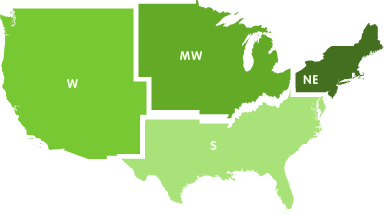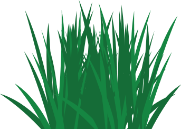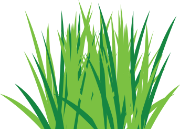Grass Pollen Allergy Symptoms and Treatment
Find out what grass pollen is and how it can trigger allergies in our helpful guide. We also outline grass pollen allergy symptoms and how to manage them, to help you find relief.
In this article:
- What Is Grass Pollen?
- What Are Grass Pollen Allergy Symptoms?
- Common Types of Grass Pollen That Can Trigger Allergies
- How To Relieve Grass Pollen Allergy Symptoms
- FAQs
What Is Grass Pollen?
Like any plant, grasses produce a fine dust made of particles called pollen1. Grass pollen is one of the most common allergens in the world. It causes an allergic reaction known as seasonal allergies2. Wind, people and pets can also carry pollen indoors, meaning it can affect you even if you stay inside.
What Are Grass Pollen Allergy Symptoms?
Grass pollen allergy symptoms are similar to other pollen allergies. The intensity of your symptoms depends on:
- The severity of your grass pollen allergy
- The amount of pollen you’re exposed to
The most common grass pollen allergy symptoms include3:
- Itchy eyes/throat
- Sneezing
- Blocked/runny nose
- Watering, red eyes (allergic conjunctivitis)
- Headaches
- Blocked sinuses
- Post-nasal drip
Types Of Grass Pollen That Can Trigger Allergies

POLLEN IS ONE OF THE MOST COMMON CAUSES OF ALLERGIES IN THE U.S. GRASS POLLEN IS PRODUCED BY A VARIETY OF GRASSES TO FERTILIZE OTHER PLANTS WITHIN THE SAME SPECIES. GRASS POLLEN IS ESPECIALLY COMMON DURING THE SUMMER.

YOUR PERFECTLY MANICURED LAWN ISN´T NECESSARILY THE ONLY CULPRIT FOR A GRASS ALLERGY. POLLEN FROM TALL GRASSES AND UNMOWED LAWNS CAN BE CARRIED BY THE WIND FOR MILES, ESPECIALLY ON DRY, SUNNY DAYS. THERE ARE MORE THAN 1,000 SPECIES OF GRASS IN NORTH AMERICA, BUT ONLY A FEW PRODUCE HIGHLY ALLERGENIC POLLEN.


| BLUEGRASS |
| WHERE: ALL REGIONS |
| WHEN: JANUARY-JULY |

| BAHIA |
| WHERE: SOUTHEAST |
| WHEN: MAY-OCTOBER |

| TIMOTHY GRASS |
| WHERE: ALL REGIONS |
| WHEN: JUNE-AUGUST |

| BERMUDA |
| WHERE: ALL REGIONS |
| WHEN: MAY-OCTOBER |

| JOHNSON GRASS |
| WHERE: ALL REGIONS |
| WHEN: JUNE-AUGUST |

| RYE GRASS |
| WHERE: ALL REGIONS |
| WHEN: APRIL-OCTOBER |

There are more than 1,000 types of grass in North America, but only a few produce highly allergenic pollen. Species of grass that produce more pollen are more likely to trigger your allergies. As a result, the most common types of grass pollen allergies include:
- Bermuda grass
- Johnson grass
- Kentucky bluegrass
- Orchard grass
- Sweet vernal grass
- Timothy grass
Different types of grass grow more frequently in some areas of the country than others. That means you may experience more symptoms depending on the type of grass pollen allergy you have, and where you are. For example, if you move to a location where there is more Bermuda grass, you may start to experience greater symptoms when that grass is in its peak season.
Different grasses also tend to pollinate at different times of the year. So you may notice your symptoms more at set times depending on your specific grass pollen allergy.
How To Relieve Grass Pollen Allergy Symptoms
Living with allergies can be frustrating. But there are plenty of ways to treat grass pollen allergies and manage your symptoms. Following just a few simple steps can make you more comfortable by providing quick grass pollen allergy relief. Here are our top tips for preventing or treating grass allergies:
- During the blooming season in your area, try to avoid grass types that trigger your grass allergy symptoms. It’s a great excuse to get out of mowing the lawn.
- If you do need to mow the lawn, consider wearing a mask to reduce the amount of pollen you breathe in.
- Outside, wear hats, gloves, glasses, paper masks or long-sleeve shirts to prevent contact with grass pollen.
- Remove your shoes before entering your home to avoid trailing pollen inside.
- Clean your clothes and take a shower after being outside to wash away any lingering pollen particles on your skin, hair and clothing.
- Don’t forget your pets. Brush them off as soon as they come inside to prevent pollen entering your home.
- Vacuum regularly and run a HEPA air filter in your home to catch pollen that might have made its way in.
- The pollen count can be at its highest between 10am and 5pm. Avoid spending time outdoors during these hours.
- Weather affects allergies, so check the local forecast. Try to stay indoors on windy days or after a heavy rain shower when there’s likely to be more grass pollen in the air.
- Check what’s in the air with the ZYRTEC® AllergyCast® app* to help you avoid grass pollen.
- To find relief from grass allergy symptoms like runny nose, sneezing, itchy watery eyes and itching of the nose or throat, try taking a grass pollen allergy medication like those from the ZYRTEC® family of products.
- Consider replacing your grass lawn with low-pollen ground covers such as Irish moss, bunch and dichondra. You could also use pollen-free features such as rocks, sand and water.
FAQs
How Long Is The Grass Pollen Season?
The grass pollen season usually runs from mid-May until July2. The exact timing can vary slightly depending on your location, as certain spots will peak at different times of the year, but there’ll only usually be a slight variance2.
Does Rain Increase Pollen?
When it rains, the grass and weed pollen levels tend to increase3. Raindrops hitting the ground break up clumps of pollen into smaller particles, causing them to spread further2. This tends to be more common during sudden, heavy downpours5.
*Available for iPhone™ and Android™. Standard data rates apply.
References:
- https://acaai.org/allergies/types-allergies/pollen-allergy
- https://health.clevelandclinic.org/how-long-does-allergy-season-last
- https://community.aafa.org/blog/how-does-rain-affect-pollen-levels
- https://www.mayoclinic.org/diseases-conditions/pet-allergy/expert-answer...
- https://www.mayoclinic.org/diseases-conditions/pink-eye/symptoms-causes/...
- https://www.mayoclinic.org/diseases-conditions/pink-eye/symptoms-causes/...


